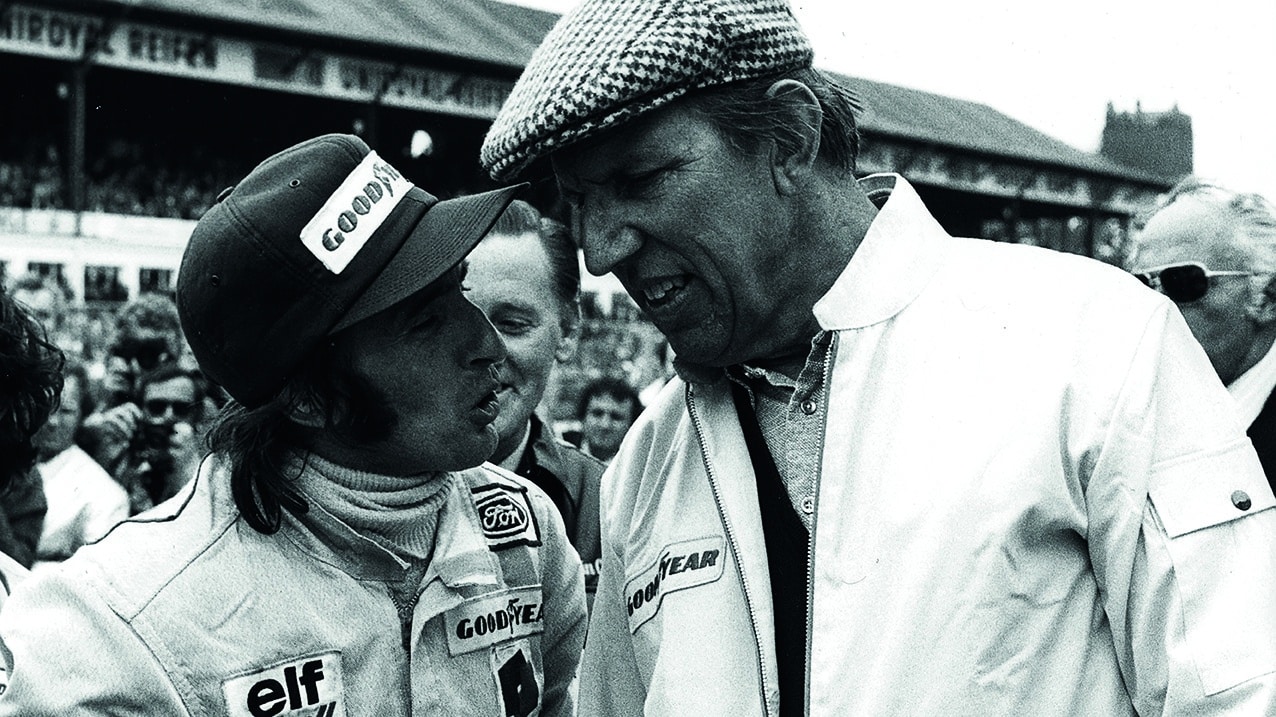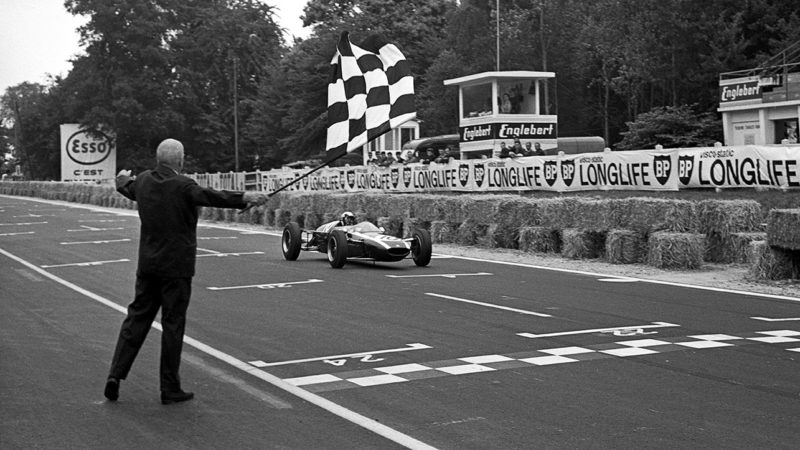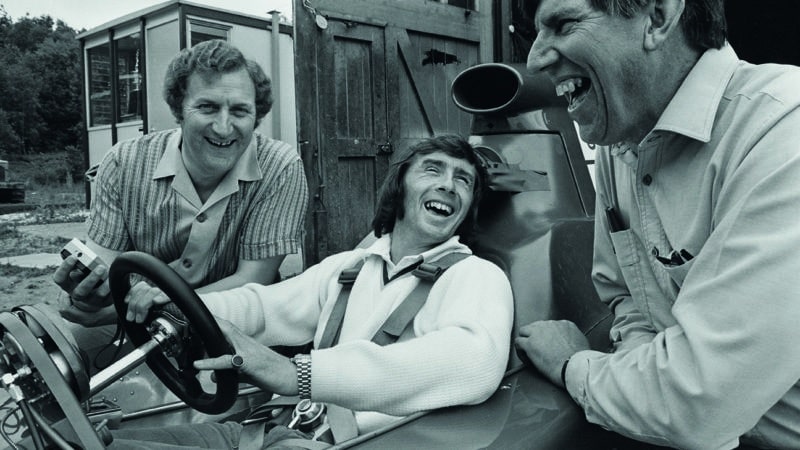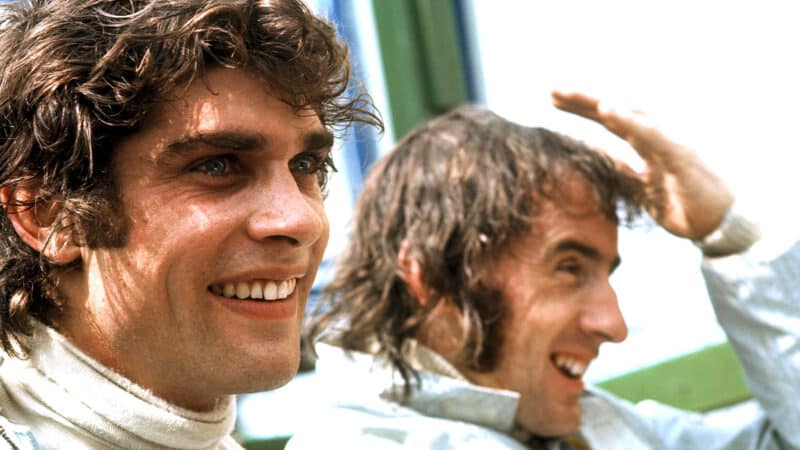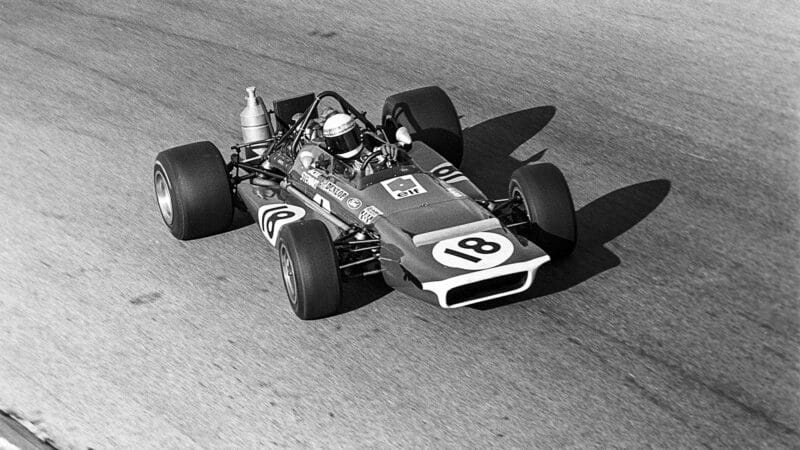“He was an honest man, and the people who worked for him were fiercely loyal to him. He was opinionated – quite socialist in his attitudes in some ways – and he treated those who worked for him very well. For example, every member of his team had private health care if required – and a pension.
“Ken was an extraordinary motivator – and he had a great ability to choose the right people. Other Tyrrell drivers, like Jean Alesi, always spoke of the ‘family’ atmosphere in the team, and it was true – in that respect it was like no other and Ken’s wife, Norah, played a big part in that. Teams were generally much smaller then than now, of course, and Tyrrell was smaller than most…”
The Stewart years at Tyrrell were of course the team’s great years. Others – Scheckter, Depailler, Alboreto – would win Grands Prix for Ken after Jackie’s retirement, but there was never the hint of another World Championship to go with those of 1969, ’71 and ’73.
For the first couple of years in F1 the team ran Cosworth-powered Matras, while the French company’s far less successful works cars were powered by its own V12 engine. By the end of 1969 Matra wanted Stewart, the new World Champion, henceforth to race a V12 car, and Tyrrell would have been involved in that, but both Ken and Jackie were adamant about sticking with the DFV and so the association ended. For 1970 Tyrrell had no alternative but to buy cars from the fledgling March company, and the 701 was so awful that a decision was swiftly taken for Tyrrell to become a constructor in its own right.
In absolute secrecy the project got underway and by the autumn, remarkably, the car was ready to race. It was the same with the P34 a few years later: I can still hear the collective gasp in the room when the wraps came off revealing this F1 car with six wheels…
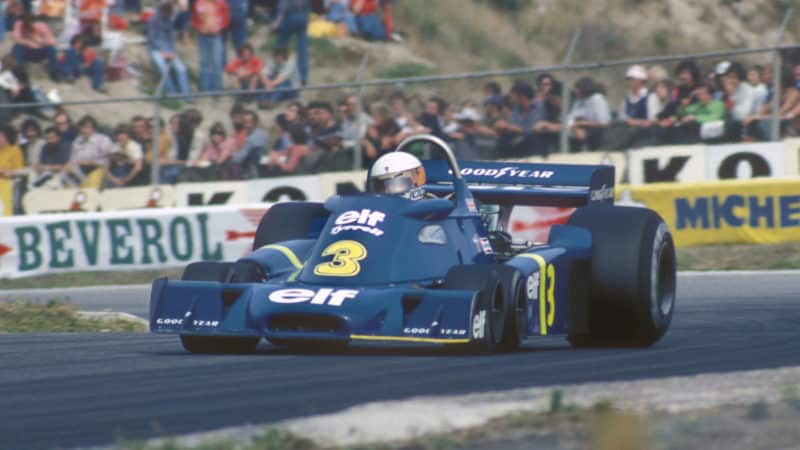
Forever an innovator
Grand Prix Photo
“Ken,” says Stewart, “was never ‘yesterday’s man’ – there was no looking back on great happenings or anything like that. The only time he ever complimented me after a race was at Monaco in ’71, when I won the race having done the whole of it with front brakes only. He said, ‘I just want you to know that was a great drive’ – I nearly fell over!
“There’s a scene in Weekend of a Champion, the Roman Polanski movie made at that race, from just after the finish: one of my mechanics, Roger Hill, is there with a bottle of Coca-Cola for me, and Ken’s in the background, packing things away. The race was just over – and as far as Ken was concerned it was already yesterday. He didn’t come to the podium with the rest of the team – it was a matter of, ‘Right, what’s the next race?’
“Ken had his small coterie of friends – and they always remained his friends, as loyal to him as he was to them. Take someone like Frank Faulkner: he was one of the world’s leading authorities on paediatrics. Frank loved racing, but there wasn’t really a lot he could offer the team – although he gave a lot of help to Danny Sullivan, who eventually drove for Ken. He was always at a race when he could be, though, and Ken respected him and thought the world of him. When he wasn’t well – towards the end of his life – Ken and Norah went to San Francisco to see him, and so did I.
“Frank was exactly the sort of person to become a friend of Ken’s. All the people you met with Ken were quality people – but not grand people, because he wasn’t into grand people and felt uncomfortable with them. It would never have occurred to him to stay in the Hotel de Paris in Monte Carlo – he always used the same little hotel in Roquebrune. ‘Why would I want to stay anywhere else?’ he’d say.
“In general, Ken’s hotel choices were awful! In the early days we’d go to the most unspeakable places – I remember [my wife] Helen and me being in this place in Rouen, with rats in the room and a bare bulb hanging from the ceiling… Hotels were chosen because they were cheap!
“And think of the way Ken dressed. Always in a collar and tie – never in a ‘race’ outfit. He wasn’t ‘social’ – never had parties at home or anything like that – but he was an entirely genuine man. When people die, and things move on, it’s very easy to sort of over-romance relationships, but there was no time in my professional career with Ken when I felt angry or upset or felt I was being taken advantage of.”
No arguments, then? “Oh Christ, sometimes we had huge arguments – huge arguments! Ken was very opinionated: he’d phone up to discuss something we were going to do and sometimes, if he didn’t agree with you, it was a real ‘froth job’! But sometimes, too, he would change his mind – he was never afraid to do that.”
And then he would say, ‘Sorry, I was wrong?’ “No, no, there was never a ‘sorry’ – just a sort of gruff, ‘Well, OK, we’ll do that then…’”
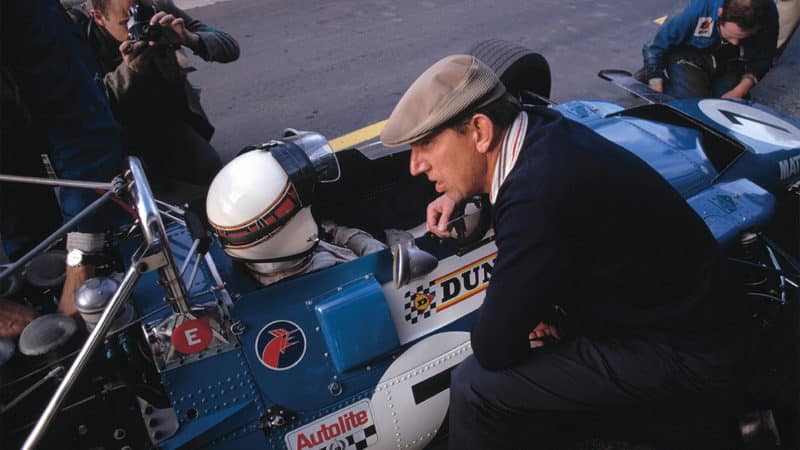
Stewart receives some last minute tips from his career’s most influential character
Getty Images
Some of their arguments stemmed from Ken’s belief that Jackie was taking too much on, that ultimately this was bound to affect his performance in the car. This was not the era in which a top driver confined himself to F1.
“I remember when François Cevert joined the team, and the role Ken played in getting me together with him, helping him – initially that was almost entirely down to Ken, not me. I liked François immediately, but at first I thought, ‘I’m not a nanny’ – I was busy trying to win myself!
“I was pretty stretched out in 1971. It was the year I got the mononucleosis, the year I made 43 trips to America – crossed the Atlantic 86 times! Ken knew that wasn’t good for me – on the other hand, in those days, if you were trying to make money…
“My retainer with Ken was £20,000 – that was what we agreed when I went there and I don’t think it ever changed! Of course the total money changed, because we began to get more benefits from outside – performance bonuses if you won a race and that sort of thing. It came from the Elfs, the Dunlops, then the Goodyears – but it still wasn’t a huge amount of money, so I was doing Can-Am with Carl Haas which paid pretty well, and driving Capris for Ford Germany occasionally, and Alan Mann’s cars – that was how you made money. By 1970 I was earning a million, but it certainly wasn’t all from Formula 1.”
If Tyrrell might have preferred Stewart not to drive for anyone else, he recognised that he wasn’t in a position to impose it. “He didn’t like it, no – and he was right! As I say, that was when I got the mononucleosis, and again, if you look at the Polanski film on Monaco ’71 you can see that I was stuffed! I was very fatigued – but the adrenalin kicked in when it had to…”
